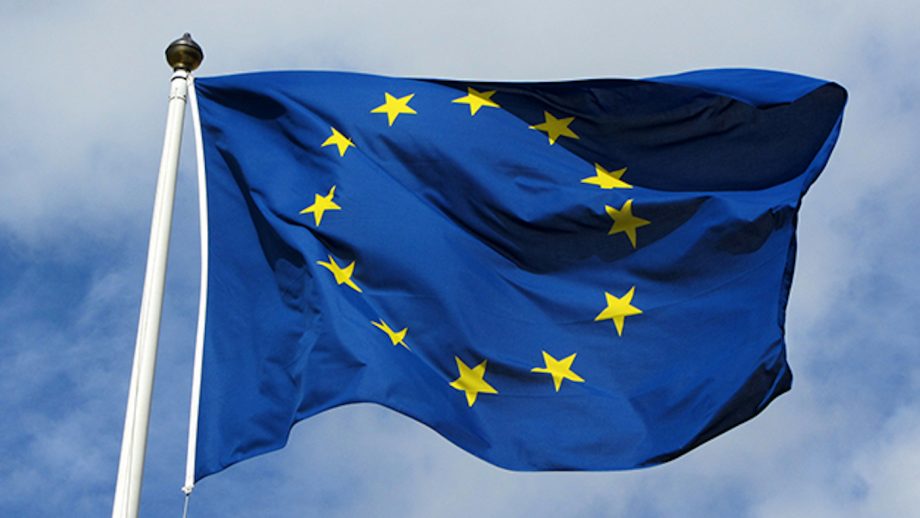In our latest coverage of the post-Brexit issues affecting the equestrian industry, H&H attends an online conference on the current situation, and finds out what work is being undertaken to try to remedy the situation
TRAVELLING horses across borders has been “fraught with new challenges” since Brexit, but it is hoped change will come.
On 17 March the Road Haulage Association (RHA) hosted a webinar, Haulier “Get Ready”: International Horse Transport , during which industry experts discussed issues experienced since Brexit, and reminded those travelling horses of the new extensive paperwork requirements and rules. Included in the requirements are export health certificates, customs declaration forms, animal transport authorisation, and vehicle approval certificates, as previously reported by H&H.
{"content":"PHA+UkhBIGhlYWQgb2YgaW50ZXJuYXRpb25hbCB0cmFuc3BvcnQgSm9obiBMdWN5IHNhaWQgaW4gdGhlIHBhc3QgMTAgd2Vla3MgdGhlIGVudGlyZSBoYXVsYWdlIGluZHVzdHJ5IGhhZCBiZWVuIOKAnHR1cm5lZCBvbiBpdHMgaGVhZOKAnS48L3A+CjxwPuKAnEl0IGNlcnRhaW5seSBhcHBlYXJzIHRoZSB0cmFuc3BvcnQgb2YgaG9yc2VzIGFjcm9zcyBvdXIgYm9yZGVyIGhhcyBiZWVuIGZyYXVnaHQgd2l0aCB0aGUgbmV3IGNoYWxsZW5nZXMs4oCdIGhlIHNhaWQsIGFkZGluZyB0aGF0IHRoZSByZWNlbnQ8YSBocmVmPSJodHRwczovL3d3dy5ob3JzZWFuZGhvdW5kLmNvLnVrL25ld3MvdWstZ292ZXJubWVudC1wcm9wb3Nlcy1iYW4tb24tbGl2ZS10cmFuc3BvcnQtZm9yLXNsYXVnaHRlci03MzE4ODAiPiBHb3Zlcm5tZW50IHRyYW5zcG9ydCBjb25zdWx0YXRpb248L2E+IGxvb2tpbmcgaW50byBhbmltYWwgd2VsZmFyZSBtYWtlcyBub3cgYSBnb29kIHRpbWUgdG8gcmFpc2UgY29uY2VybnMgZm9sbG93aW5nIEJyZXhpdC48L3A+CjxwPuKAnEl04oCZcyB0aW1lbHkgdGhhdCB3ZSBnZXQgc29tZSBvZiB0aGVzZSBpc3N1ZXMgb3V0IHRoZXJlIGludG8gdGhlIHB1YmxpYyBhbmQgdXNlIHRoaXMgYXMgYSBwbGF0Zm9ybSB0byBnZXQgdGhlIHZpZXdzIG9mIHRoZSBob3JzZSB0cmFuc3BvcnQgaW5kdXN0cnkgaW50byB0aGUgR292ZXJubWVudC7igJ08L3A+CjxwPjxkaXYgY2xhc3M9ImFkLWNvbnRhaW5lciBhZC1jb250YWluZXItLW1vYmlsZSI+PGRpdiBpZD0icG9zdC1pbmxpbmUtMiIgY2xhc3M9ImlwYy1hZHZlcnQiPjwvZGl2PjwvZGl2PjxzZWN0aW9uIGlkPSJlbWJlZF9jb2RlLTMxIiBjbGFzcz0iaGlkZGVuLW1kIGhpZGRlbi1sZyBzLWNvbnRhaW5lciBzdGlja3ktYW5jaG9yIGhpZGUtd2lkZ2V0LXRpdGxlIHdpZGdldF9lbWJlZF9jb2RlIHByZW1pdW1faW5saW5lXzIiPjxzZWN0aW9uIGNsYXNzPSJzLWNvbnRhaW5lciBsaXN0aW5nLS1zaW5nbGUgbGlzdGluZy0tc2luZ2xlLXNoYXJldGhyb3VnaCBpbWFnZS1hc3BlY3QtbGFuZHNjYXBlIGRlZmF1bHQgc2hhcmV0aHJvdWdoLWFkIHNoYXJldGhyb3VnaC1hZC1oaWRkZW4iPg0KICA8ZGl2IGNsYXNzPSJzLWNvbnRhaW5lcl9faW5uZXIiPg0KICAgIDx1bD4NCiAgICAgIDxsaSBpZD0ibmF0aXZlLWNvbnRlbnQtbW9iaWxlIiBjbGFzcz0ibGlzdGluZy1pdGVtIj4NCiAgICAgIDwvbGk+DQogICAgPC91bD4NCiAgPC9kaXY+DQo8L3NlY3Rpb24+PC9zZWN0aW9uPjwvcD4KPHA+SnVsaWUgTWFnbnVzIG9mIEp1bGllIE1hZ251cyBSYWNlaG9yc2UgVHJhbnNwb3J0IHJlbWluZGVkIHRob3NlIHRyYXZlbGxpbmcgaG9yc2VzIG9mIHRoZSBpbXBvcnRhbmNlIG9mIGhhdmluZyB0aGUgY29ycmVjdCBvcGVyYXRvciBsaWNlbmNlIChvYnRhaW5lZCBmcm9tIHRoZSBEVlNBKSwgYW5kIHVuZGVyc3RhbmRpbmcgdGhlIGNvbW1lcmNpYWwgYXNwZWN0cy48L3A+CjxwPuKAnFNpbmNlIHdlIGhhdmUgbGVmdCwgdGhlIEVVIGhhcyBzYWlkIHdoYXQgdGhleSBjb25zaWRlciBpcyBjb21tZXJjaWFsOyBpZiB5b3VyIHByaW1hcnkgaW5jb21lIGlzIGhvcnNlcywgdHJhaW5pbmcgb3IgcmlkaW5nLCB5b3UgYXJlIHJlcXVpcmVkIHRvIGhhdmUgb3BlcmF0b3IgbGljZW5jZXMs4oCdIHNoZSBzYWlkLDwvcD4KPHA+4oCcVGhlcmUmIzgyMTc7cyBubyB3YXkgYXJvdW5kIGl0IOKAkyBjb21tZXJjaWFsIGlzIGNvbW1lcmNpYWwuIEl0IGFsbCBoYXMgdG8gYmUgZG9uZSBhYm92ZSBhYm9hcmQgYW5kIHVuZm9ydHVuYXRlbHkgcGVvcGxlIHRoYXQgaGF2ZSBnb25lIGFjcm9zcyBoYXZlIGJlZW4gc3RvcHBlZCBhbmQgZmluZWQg4oKsMTAsMDAwIFvCozgsNTAwXSBmb3Igbm90IGhhdmluZyB0aGVzZSBsaWNlbmNlcy7igJ08L3A+CjxkaXYgY2xhc3M9ImFkLWNvbnRhaW5lciBhZC1jb250YWluZXItLW1vYmlsZSI+PGRpdiBpZD0icG9zdC1pbmxpbmUtMyIgY2xhc3M9ImlwYy1hZHZlcnQiPjwvZGl2PjwvZGl2Pgo8cD5DaGFybGVzIEN1bm5pbmdoYW0gb2YgSG9yc2UgVHJhbnNwb3J0IEV1cm9wZSBzcG9rZSBhYm91dCBFVSBob3JzZWJveCByZXF1aXJlbWVudHMgaW5jbHVkaW5nIGNvbnRhaW5lciBjZXJ0aWZpY2F0ZXMsIHRoZSByZXF1aXJlbWVudCBmb3IgdGVtcGVyYXR1cmUgbW9uaXRvcmluZyBhbmQgZGF0YSBsb2dnaW5nLCBhbmQgdGhlIGFwcGxpY2F0aW9uIHByb2Nlc3MgZm9yIGFuaW1hbCB0cmFuc3BvcnQgYXV0aG9yaXNhdGlvbiwgYW5kIHVyZ2VkIHBlb3BsZSB0byDigJxwbGFuIGFoZWFk4oCdLjwvcD4KPHA+4oCcUHJpb3IgdG8gQnJleGl0LCBsb3JyaWVzIGRvaW5nIGludGVybmF0aW9uYWwgbW92ZW1lbnQgb2YgaG9yc2VzIGhhZCBvbmUgY29udGFpbmVyIGNlcnRpZmljYXRlLiBOb3cgYXMgdGhlIGNlcnRpZmljYXRlcyBhcmUgbm90IHJlY29nbmlzZWQgYmV0d2VlbiB0aGUgRVUgYW5kIHRoZSBVSyB3ZSBoYXZlIHRvIGhhdmUgdGhlbSBpbnNwZWN0ZWQgaW4gYm90aCBqdXJpc2RpY3Rpb25zLiBUaGVyZSBpcyBhIGxpc3Qgb24gdGhlIERlZnJhIHdlYnNpdGUgYXMgdG8gd2hhdCB0aGUgc3BlY2lmaWNhdGlvbnMgYXJlLOKAnSBoZSBzYWlkLjwvcD4KPGRpdiBjbGFzcz0iYWQtY29udGFpbmVyIGFkLWNvbnRhaW5lci0tbW9iaWxlIj48ZGl2IGlkPSJwb3N0LWlubGluZS00IiBjbGFzcz0iaXBjLWFkdmVydCI+PC9kaXY+PC9kaXY+CjxwPuKAnEZvciB0aGUgdGVtcGVyYXR1cmUgYW5kIGRhdGEgbG9nZ2luZyB0aGVzZSBhcmUgZG93bmxvYWRlZCBwaWVjZXMgb2Yga2l0LCBzbyBpZiB0aGVyZSB3YXMgYW55IGlzc3VlIGR1cmluZyB0cmFuc2l0IHRoZSBhdXRob3JpdGllcyBjYW4gbG9nIGluIGFuZCBzZWUgd2hhdCB0aGUgdGVtcGVyYXR1cmVzIHdlcmUsIGFuZCBob3cgdGhleSB3ZXJlIG1haW50YWluZWQu4oCdPC9wPgo8cD5Db25jZXJucyBoYXZlIHByZXZpb3VzbHkgYmVlbiByYWlzZWQgYWJvdXQgZGVsYXlzIGluIENhbGFpcywgYW5kIHRoZSBwb3J04oCYcyBkZXB1dHkgbWFuYWdpbmcgZGlyZWN0b3IgQmVub2l0IFJvY2hldCBzYWlkIHNvbWUgMTUsMDAwIGhvcnNlcyBjcm9zcyB0aGUgQ2hhbm5lbCBlYWNoIHdheSBwZXIgeWVhci4gVGhvc2UgdHJhdmVsbGluZyBob3JzZXMgYXJlIHJlcXVpcmVkIHRvIGJvb2sgYSBzbG90IGZvciB0aGVpciBhcnJpdmFsIGluIENhbGFpcyA0OCBob3VycyBiZWZvcmUgZGVwYXJ0aW5nIERvdmVyLjwvcD4KPGRpdiBjbGFzcz0iYWQtY29udGFpbmVyIGFkLWNvbnRhaW5lci0tbW9iaWxlIj48ZGl2IGlkPSJwb3N0LWlubGluZS01IiBjbGFzcz0iaXBjLWFkdmVydCI+PC9kaXY+PC9kaXY+CjxwPuKAnFRoZSBwcm9jZWR1cmUgdGhhdCBoYXMgYmVlbiBwdXQgaW4gcGxhY2UgaGFzIGJlZW4gbmVnb3RpYXRlZCB3aXRoIEZyZW5jaCBjdXN0b21zIGFuZCB0aGUgb2ZmaWNpYWwgdmV0cyBzbyB0aGF0IHRoZSB0aW1lIHNwZW50IG9uIHRoZSBwb3J0IGlzIHJlZHVjZWQs4oCdIGhlIHNhaWQsIGFkZGluZyB0aGF0IHRoZSB0YXJnZXQgZm9yIGFycml2aW5nIGFuZCByZWNlaXZpbmcgYXV0aG9yaXNhdGlvbiB0byBsZWF2ZSB0aGUgcG9ydCBpcyBvbmUtYW5kLWEtaGFsZiBob3VyczwvcD4KPHA+4oCcV2Ugd2FudCBvdXIgY2xpZW50cyB0byBiZSBoYXBweS4gVGhleSBkb27igJl0IHdhbnQgdG8gc3RheSBmb3IgYSBsb25nIHRpbWUgc28gdGhhdOKAmXMgc29tZXRoaW5nIHdl4oCZcmUgd29ya2luZyBvbi7igJ08L3A+CjxwPkphbiBSb2dlcnMgb2YgdGhlIEJyaXRpc2ggSG9yc2UgQ291bmNpbCBzYWlkIHRoZSBjaGFuZ2VzIGFyZSBhIOKAnG5hdHVyYWwgZmVhdHVyZeKAnSBvZiBoYXZpbmcgbGVmdCB0aGUgRVUsIGFkZGluZyB0aGF0IGJlY2F1c2Ugbm8gY291bnRyeSBoYXMgbGVmdCBiZWZvcmUsIHRoZXJlIHdhcyBubyBwcmVjZWRlbnQuIFNoZSBzYWlkIGJlY2F1c2Ugb2YgdGhlIGZyZWUgdHJhZGUgYWdyZWVtZW50IHRoZXJlIGlzIGNhcGFjaXR5IHRvIGJyaW5nIGluIHNwZWNpYWxpc2VkIGNvbW1pdHRlZXMgYW5kIHNjb3BlIGZvciBzb21lIHJlcXVpcmVtZW50cyB0byBiZSBjaGFuZ2VkLjwvcD4KPHA+4oCcVGhlc2UgW3JlcXVpcmVtZW50c10gY291bGQgYmUgZnVydGhlciByZWZpbmVkIGFuZCBiZWNvbWUgbGVzcyBvbmVyb3VzIG92ZXIgdGltZSB3aXRoIG5lZ290aWF0aW9ucy4gVGhhdCB3aWxsIGNvbWUgYXMgYSByZXN1bHQgb2YgZHJhd2luZyB1cG9uIGluZm9ybWF0aW9uIGdhdGhlcmVkIGluIGNvbnN1bHRhdGlvbnMs4oCdIHNoZSBzYWlkLjwvcD4KPGRpdiBjbGFzcz0iaW5qZWN0aW9uIj48L2Rpdj4KPHA+4oCcV2XigJlyZSBhbHNvIGNvbGxlY3RpbmcgYSBsb3Qgb2YgaW5mb3JtYXRpb24gYW5kIGRhdGEgdGhyb3VnaCBjb2xsZWFndWVzIG9uIHRoZSBDb250aW5lbnQgYW5kIGdvdmVybmluZyBib2RpZXM7IHdl4oCZcmUgbG9va2luZyBhdCB3aGVyZSB0aGUgY2hhbGxlbmdlcyBhcmUgYW5kIHdoZXJlLCBiZXR3ZWVuIHVzLCB3ZSBjYW4gZ2V0IHJlY2lwcm9jaXR5IGZyb20gdGhlIGNoYW5nZXMuIEluZm9ybWF0aW9uIGlzIHZhbHVhYmxlIGFuZCBjaGFuZ2VzIGNhbiBiZSBicm91Z2h0IGFib3V0IHByb3ZpZGVkIHdlIGhhdmUgc3VmZmljaWVudCBldmlkZW5jZSB0byBkZW1vbnN0cmF0ZSB0aGF0IGl0IHdpbGwgYmUgdmFsdWFibGUuIFRoZSBmdXR1cmUgd2lsbCBjaGFuZ2Ug4oCTIHRoaXMgaXNu4oCZdCBjYXN0IGluIHN0b25lLuKAnTwvcD4KPHA+Cg=="}
You might also be interested in…
Credit: Alamy Stock Photo
‘EU rules prevented any changes to these journeys, but leaving the EU has enabled the UK Government to pursue these
Library image.
Credit: Lucy Merrell
Carl Hester discusses the issues involved in transporting horses post-Brexit
Library image
Stay in touch with all the news in the run-up to and throughout the major shows and events during 2026 and beyond with a Horse & Hound subscription. Subscribe today for all you need to know ahead of these major events, plus online reports on the action as it happens from our expert team of reporters and in-depth analysis in our special commemorative magazines. Have a subscription already? Set up your unlimited website access now
H&H senior news writer
Since joining H&H in 2018, Becky has covered a broad range of equestrian news including welfare matters, veterinary studies, FEI Tribunal hearings and road safety campaigns. She has also interviewed top riders including Scott Brash, John Whitaker and Ian Stark, to name just a few. Becky’s reporting has taken her to Canada for Spruce Meadows and France for Pau five-star, as well as the Royal Highland and Blair Castle International Horse Trials closer to home. She was also a key part of the remote reporting team for the Tokyo Olympics and the Europeans.





